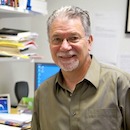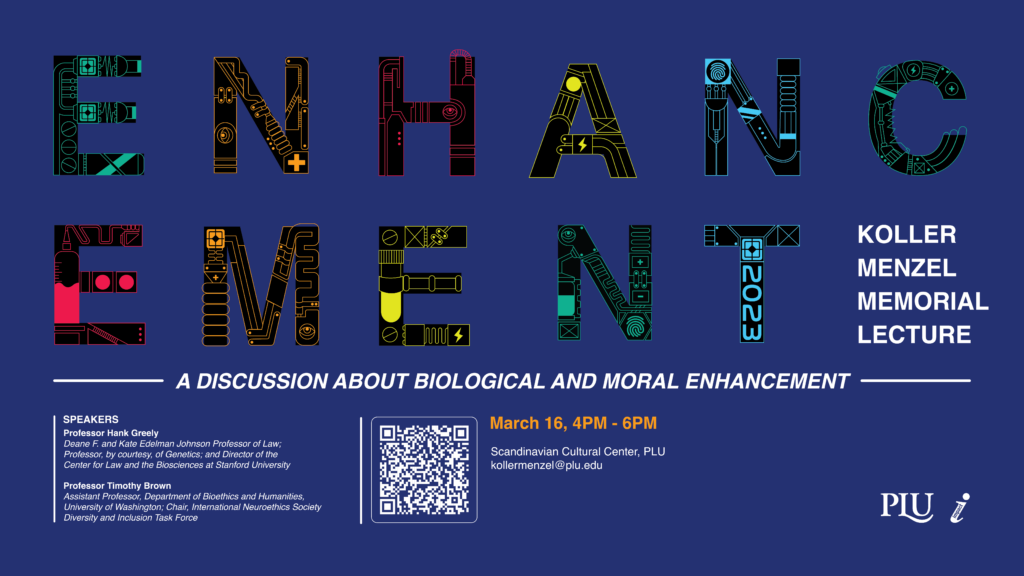Page 20 • (559 results in 0.017 seconds)
-
The Pacific Lutheran University English department offers emphases in writing and literature, as well as minors in Children’s Literature and Culture and Publishing and Printing Arts.
my time here at PLU. I truly believe in the power of the Humanities. The English Department has been incredibly flexible with me, and all of my professors have been absolutely fantastic. The chance to develop my skills as a poet and writer has been wonderful. If there’s a place that allows you to take on all the different parts of yourself, it’s PLU. Daniel Bensen (’24)
Professor Jim Albrecht, ChairHauge Administration Building Admin 207D 12180 Park Ave S Tacoma, WA 98447 -

Pacific Lutheran University’s Wild Hope Center for Vocation is pleased to announce that travel expert, author, television host and activist Rick Steves will visit campus on Wednesday, March 22 to receive the 2023 Wild Hope Award and give a presentation on “Travel as a Wildly…
Wild Hope Center, and we look forward to learning from him and celebrating his commitment to human and ecological flourishing,” said Faculty Fellow in Humanities and Wild Hope Director for External Relations Samuel Torvend. In 2019, Steves was featured in PLU’s ResoLute magazine and shared insights about the political and spiritual benefits of international travel. “The whole idea about traveling is to get out of your comfort zone, and to gain an empathy for the other 96 percent of humanity
-
Time: 7:30 p.m. | Thursday, Sept. 28 Location: Lagerquist Concert Hall Tickets: Free and open to the public, but tickets to the concert must be picked up in advance at the PLU Concierge Desk in the
in the Department of Religion, at torvensa@plu.edu or Cynthia Givens, Administrative Assistant to the Humanities Division, at cynthia.givens@plu.edu. Note: not a part of the Lutheran Studies Conference RegistrationLearn more about the National Lutheran Choir
-
Within the environmental studies curriculum at PLU, the social sciences provide perspectives on the environment from a human point of view, balancing the ecological perspectives contributed by the
, beliefs and values, and the dissemination of these ideas through business, education, nursing and other professions.Within the environmental studies curriculum, the social sciences provide perspectives on the environment from a human point of view, balancing the ecological perspectives contributed by the natural sciences with the economic and political aspects of human society. Courses in the humanities bring the insights of religion and ethics as well as a body of literature and artistic appreciation
-
Learning about the environment offers opportunities to integrate studies of nature and natural systems with those of human systems, and to bring both into dialogue with a humanistic understanding of
, humanities, or arts. It is also possible to combine professional programs with Environmental Studies. All students develop grounding in science, an understanding of institutional processes, an appreciation of values, beauty, and holistic thinking, and a solid foundation in various methodologies and skills.
-

Kurt Mayer Chair, Emeritus | Department of History | ericksrp@plu.edu | Robert Ericksen, Kurt Mayer Chair in Holocaust Studies Emeritus and Professor of History at PLU, earned his Ph.D.
Museum, and the Lutheran Academy of Scholars at Harvard University; he has received research awards from the National Endowment for the Humanities, among others; he is a founding member on the board of editors of a German journal, Kirchliche Zeitgeschichte, and of an online journal, Contemporary Church History Quarterly; and he serves as Chair of the Committee on Ethics, Religion and the Holocaust at the U.S. Holocaust Memorial Museum. In 2004 Ericksen delivered the biennial Kaplan Holocaust Lectures
Contact Information -

Innovation Studies is excited to announce this year’s Koller Menzel Memorial Lecture, an event taking place on Thursday, March 16 from 4-6pm in the Scandinavian Cultural Center in the AUC. This year’s panel features a bioethics discussion with University of Washington professor Tim Brown and…
Greely. They will offer unique perspectives on the evening’s discussion topic, “Enhancement,” exploring the implications of technology-driven enhancement in biomedicine. Professor Tim Brown from the University of Washington’s department of Bioethics and Humanities will share a presentation titled “The Moral Enhancement Project: Fear, Anger, and Agency.” Brown is a founding member of and long-term contributor to the Neuroethics research focus within UW’s Center for Neurotechnology. He also leads
-

The 14th Annual Powell-Heller Conference for Holocaust Education will occur on October 26-28, 2022 at Pacific Lutheran University. This year the conference theme is “Jewish Life in Poland: Before, During and After the Holocaust.” The keynote speaker is professor of history Jan Grabowski from the…
especially strong attention given to the arts, humanities, social sciences, health sciences and education. To register, visit plu.edu/holocaustconference. The Powell-Heller Conference for Holocaust Education is made possible by the Powell Family Foundation, with special thanks to Nancy Powell and Carol Heller. We greatly appreciate the Mayer family for their support of the Powell-Heller Conference and the Kurt Mayer Summer Scholars Fellowship. Read Previous PLU receives a major gift to fund
-
Natural Sciences Courses The following courses are required by most programs: BIOL 205: Human Anatomy and Physiology I BIOL 206: Human Anatomy and Physiology II Additional courses in the sciences
one or more social and behavioral courses. We recommend you take the following courses since these offerings are typically required by OT schools: PSYC 101: Introduction to Psychology SOCI 101: Introduction to Sociology PSYC 320: Development Across the Lifespan PSYC 415: Abnormal Psychology Humanities Courses General education courses are also recommended to demonstrate competency in English composition, oral communication, problem-solving behavior, logic, and ethical theories.ExperienceIn order
-
Natural Sciences Courses The following courses are required by most programs: BIOL 205: Human Anatomy and Physiology I BIOL 206: Human Anatomy and Physiology II Additional courses in the sciences
one or more social and behavioral courses. We recommend you take the following courses since these offerings are typically required by OT schools: PSYC 101: Introduction to Psychology SOCI 101: Introduction to Sociology PSYC 320: Development Across the Lifespan PSYC 415: Abnormal Psychology Humanities Courses General education courses are also recommended to demonstrate competency in English composition, oral communication, problem-solving behavior, logic, and ethical theories.ExperienceIn order
Do you have any feedback for us? If so, feel free to use our Feedback Form.


